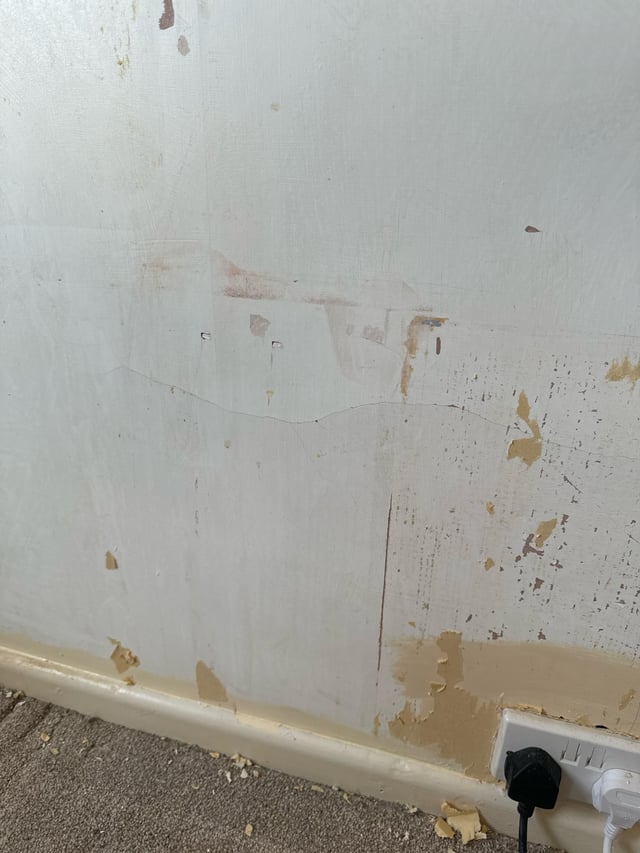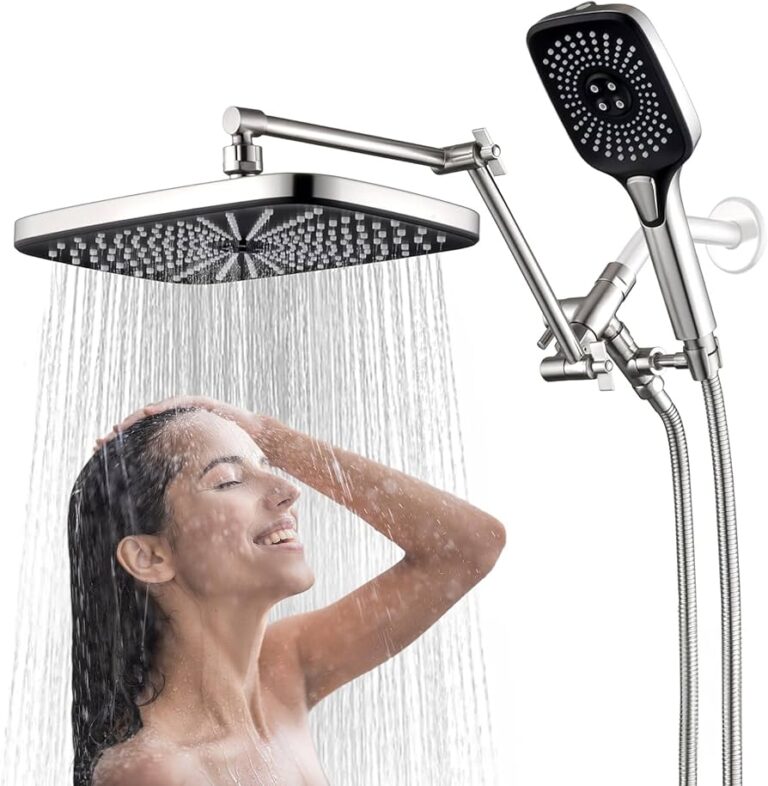Can You Use Too Much Septic Treatment: Tips & Warnings
Using too much septic treatment can harm your system. It’s vital to use the right amount for effectiveness.
Septic systems are crucial for homes not connected to city sewage. They need regular maintenance to function well. Many people use septic treatments to help with this. But can you use too much? Overusing septic treatment can cause problems. It might disrupt the natural bacteria balance.
This can lead to system failures. Understanding the right amount to use is essential. It can save you from costly repairs. In this post, we will explore the effects of overusing septic treatments. We will also provide tips on proper usage. Let’s dive in and learn more.

Credit: thinkblueconnecticutriver.org
Introduction To Septic Treatments
Septic systems play a crucial role in managing household wastewater. They treat waste onsite, making them essential for homes without access to city sewer lines. Proper maintenance is key to keeping these systems efficient. This is where septic treatments come in.
Purpose Of Septic Treatments
Septic treatments help maintain the balance of bacteria in your tank. These bacteria break down waste and keep the system working smoothly. Treatments prevent blockages and reduce odors. They also extend the lifespan of your septic system.
Common Types Of Treatments
There are various types of septic treatments available. Biological additives introduce beneficial bacteria into your tank. These bacteria accelerate the breakdown of waste. Enzyme treatments break down fats, oils, and grease. They help prevent clogs and improve the system’s efficiency. Chemical treatments include disinfectants and degreasers. They target specific issues like bad odors or excess grease.
Understanding the types of treatments available can help you choose the best one for your system. Regular use of the right treatment ensures your septic system remains healthy.
Signs Of Overuse
While septic treatments are essential for maintaining a healthy septic system, using too much can cause more harm than good. If you suspect you might be overdoing it, here are some signs to watch out for. Recognizing these early can save you from bigger problems down the line.
Slow Draining Fixtures
One of the first signs that you’re using too much septic treatment is slow draining fixtures. Have you noticed your sink or shower taking longer than usual to drain? This could be because excessive septic treatment has disrupted the natural bacteria balance in your tank. When there’s too much treatment, the bacteria can’t do their job effectively, causing a backup in your pipes.
So, if your toilet is flushing slowly or your drains are sluggish, it might be time to rethink the amount of septic treatment you’re using. A little goes a long way; more isn’t always better!
Unpleasant Odors
Nobody wants to deal with bad smells in their home. If you’re noticing unpleasant odors, especially around your septic system or drains, it could be a red flag. Overusing septic treatments can kill off too many good bacteria, leading to a build-up of waste that produces foul smells.
Picture this: you walk into your bathroom and are greeted by a nasty stench. Not the best way to start your day, right? Keeping the balance in your septic tank is key to avoiding this. Less treatment might just be the remedy you need.
Remember, the goal is to maintain your septic system, not overwhelm it. Moderation is key! If you suspect you might be using too much, try cutting back and observe if these signs improve. Your nose and your drains will thank you.
Potential Risks
Using septic treatment can help maintain your septic system. But, using too much can cause potential risks. Understanding these risks is important for the health of your system and the environment.
Damage To Septic System
Too much septic treatment can overwhelm your septic system. This can lead to clogs and backups. Excessive treatment can disrupt the natural bacteria balance. This balance is crucial for breaking down waste. It can also cause the tank to fill up faster than normal. This may result in more frequent pump-outs. Overuse can damage the septic tank and pipes. Repairing or replacing these parts can be costly.
Environmental Impact
Overusing septic treatment can harm the environment. Chemicals from treatments can seep into the soil. This can contaminate groundwater and nearby water sources. Harmful chemicals can affect plant and animal life. It can also reduce the effectiveness of your drain field. This area needs a balance of bacteria to filter wastewater properly. Too much treatment can disrupt this balance. It can lead to environmental pollution and health hazards.
Correct Dosage Guidelines
Using the correct dosage of septic treatment is crucial for maintaining your septic system. Overuse can disrupt the natural balance, causing more harm than good. To ensure the best results, follow these guidelines closely.
Manufacturer Recommendations
Always check the label for the manufacturer’s dosage instructions. These are tailored to the specific product. The instructions provide the right amount to use for optimal performance. Do not assume that more is better. Stick to the recommended dose to avoid issues.
Professional Advice
Consulting a septic system professional can offer valuable insights. They can assess your system’s unique needs. Professionals may suggest specific products or dosages based on your system’s size and condition. This ensures you use the right amount for effective treatment.
Natural Alternatives
Many homeowners wonder about the best ways to maintain their septic systems. While commercial treatments are available, natural alternatives can be more beneficial. They are often safer for the environment and less harsh on your system. This section will explore household remedies and eco-friendly products that can keep your septic system running smoothly.
Household Remedies
Several household items can help maintain a healthy septic system. Baking soda is one such remedy. It helps to balance the pH levels in your tank. Simply pour a cup of baking soda down the drain once a week. Vinegar is another effective option. It can break down grease and other buildup. Use a cup of vinegar monthly to keep your system clean.
Another helpful household item is Epsom salt. It can help prevent clogs by breaking down waste. Dissolve a cup of Epsom salt in warm water. Pour it down the drain every month. These simple remedies can make a big difference in your septic system’s health.
Eco-friendly Products
Eco-friendly septic treatments are another great option. These products use natural bacteria and enzymes to break down waste. They are safe for the environment and your septic system. One popular eco-friendly product is Bio-Clean. It contains natural enzymes that digest organic waste. Another option is GreenPig. It introduces billions of beneficial bacteria into your system. This helps to break down waste more efficiently.
Eco-friendly treatments reduce the need for harsh chemicals. They are also often more effective in the long run. Using these products can help maintain your septic system while protecting the environment. Choose eco-friendly options to ensure a healthy, efficient septic system.

Credit: supeckseptic.com
When To Seek Professional Help
Managing a septic system can sometimes feel like a daunting task. You might be wondering, “Can you use too much septic treatment?” The answer is yes, and when issues arise, it’s crucial to know when to call in the professionals. Let’s dive into some signs that indicate it’s time to seek expert assistance.
Persistent Issues
Have you been facing recurring problems with your septic system despite using treatments? Persistent issues like slow drains, unpleasant odors, or frequent backups are red flags. Septic treatments can only do so much. If these problems keep coming back, it’s a sign that there might be a deeper issue at play. A professional can diagnose and fix the root cause, saving you time, money, and frustration in the long run.
Regular Maintenance
Just like a car needs regular oil changes, your septic system also requires routine check-ups. Here’s a quick checklist to help you stay on top of your septic maintenance:
- Annual Inspections: Have a professional inspect your system once a year.
- Pumping Schedule: Get your tank pumped every 3-5 years, depending on usage.
- Monitor Water Usage: Be mindful of water consumption to avoid overloading the system.
By sticking to a regular maintenance schedule, you can prevent small issues from turning into costly repairs. A professional can help you create a maintenance plan tailored to your system’s needs.
Remember, it’s always better to be proactive rather than reactive. So, when in doubt, don’t hesitate to reach out to a septic expert. They have the knowledge and tools to keep your system running smoothly, ensuring peace of mind for years to come.
Here’s a little tip: Think of your septic system like a well-oiled machine. Regular tune-ups and the right amount of TLC can keep it humming along without a hitch. And when things get tricky, a professional is your best friend to get everything back on track.
Preventative Measures
Septic systems are a crucial part of many homes, especially in rural areas. They require regular maintenance to function properly. But did you know that using too much septic treatment can actually harm your system? It’s true! Too much of a good thing can indeed be bad. However, taking the right preventative measures can keep your septic system running smoothly. Let’s dive into some simple yet effective strategies to safeguard your septic system.
Proper Waste Disposal
One of the most important steps in maintaining your septic system is proper waste disposal. This isn’t just about flushing the right things down the toilet, although that’s a big part of it. It’s also about what goes down your kitchen sink and other drains.
- Avoid flushing non-biodegradable items: Items like wipes, diapers, and feminine hygiene products can clog your system.
- Be mindful of grease and oils: These can solidify and cause blockages.
- Limit chemical use: Harsh chemicals can kill the beneficial bacteria in your septic tank.
Think of your septic system as a delicate ecosystem. Feeding it the wrong things can upset the balance and lead to costly repairs.
Routine Inspections
Just like a car needs regular check-ups, your septic system benefits from routine inspections. These inspections can catch small issues before they become big problems.
Here are a few tips for maintaining your system:
- Schedule annual inspections: A professional can assess the health of your system and suggest any necessary maintenance.
- Pump your tank regularly: Depending on the size of your household and tank, this might be every 3-5 years.
- Check for leaks: Small leaks can indicate larger underlying issues.
Regular inspections are like giving your septic system a health check-up. They ensure everything is in working order and can extend the life of your system.
By following these preventative measures, you can avoid the pitfalls of overusing septic treatments and keep your system running efficiently. Remember, a little care goes a long way in maintaining a healthy septic system!

Credit: greengobbler.com
Frequently Asked Questions
Can You Put Too Much Treatment In Your Septic Tank?
Yes, adding too much treatment can harm your septic tank. Overdosing disrupts bacterial balance and reduces efficiency. Use products as directed.
How Often Should I Use Septic Treatment?
Use septic treatment once a month. Regular use keeps your system efficient and prevents clogs and odors.
Can You Put Too Much Enzymes In A Septic Tank?
Yes, using too many enzymes can disrupt the balance of bacteria in a septic tank, leading to potential issues.
Can You Use Too Much Ridex?
Yes, using too much Ridex can disrupt the balance of your septic system. Follow the recommended dosage for best results.
Conclusion
Using too much septic treatment can harm your system. Balance is key. Follow the product’s guidelines. Overuse can disrupt bacteria. This leads to clogs and odors. Regular maintenance ensures efficiency. Consult a professional if unsure. Keep your septic system healthy.
Proper care saves money and stress. Avoid over-treatment for best results.

My name is Maria, A professional merge game player with years of experience mastering games like Merge Dragons, Merge Gardens, Merge Mansion, and more. My passion for uncovering the best strategies, solving tricky puzzles, and discovering hidden secrets led her to create MergeGameplay.com.





